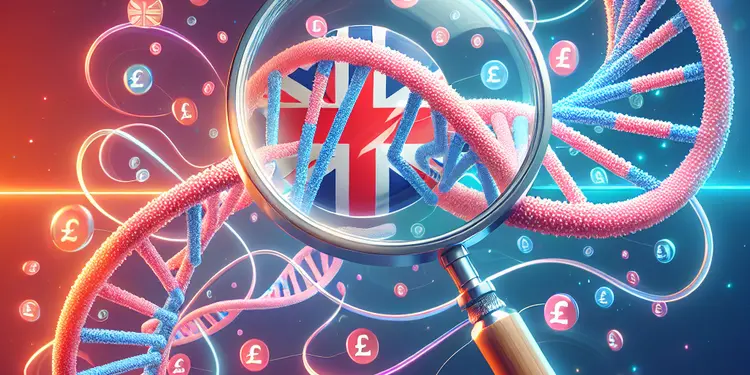
Find Help
More Items From Ergsy search
-
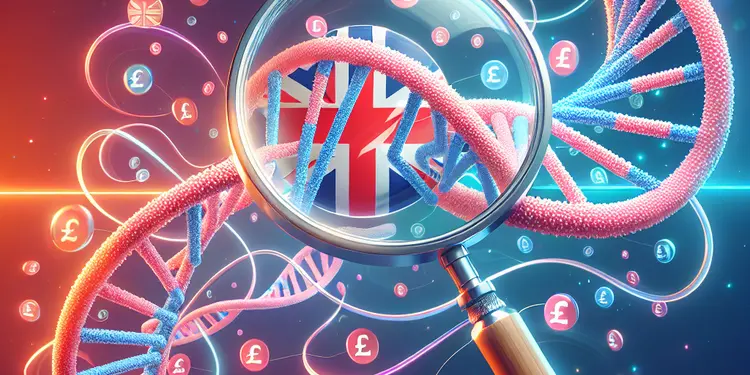
What is the role of genetic testing in Huntington's disease?
Relevance: 100%
-

How is Huntington's disease diagnosed?
Relevance: 78%
-

What is Huntington's disease?
Relevance: 77%
-

Can Huntington's disease be prevented?
Relevance: 76%
-

What causes Huntington's disease?
Relevance: 71%
-

At what age do symptoms of Huntington's disease typically appear?
Relevance: 70%
-

Is Huntington's disease fatal?
Relevance: 69%
-

What research is being done on Huntington's disease?
Relevance: 68%
-

Can Huntington's disease be cured?
Relevance: 67%
-

What are the symptoms of Huntington's disease?
Relevance: 65%
-

How does Huntington's disease affect cognition?
Relevance: 64%
-

What kinds of specialists are involved in treating Huntington's disease?
Relevance: 63%
-

How does Huntington's disease affect movement?
Relevance: 63%
-

How does Huntington's disease affect emotions?
Relevance: 60%
-

Can lifestyle changes help manage Huntington's disease?
Relevance: 56%
-

How is Huntington's disease inherited?
Relevance: 52%
-

What is Juvenile Huntington's disease?
Relevance: 51%
-
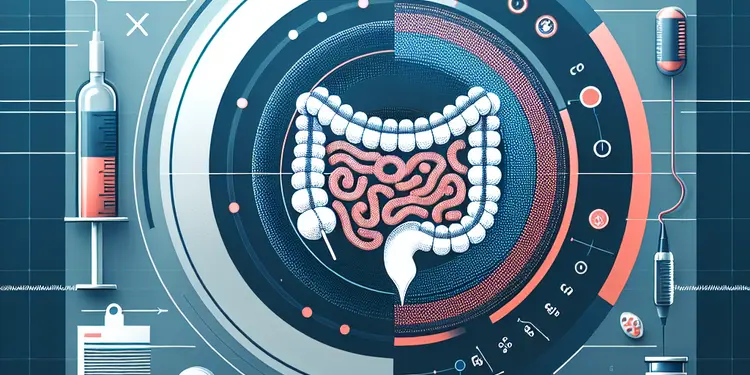
Is genetic testing available for colorectal cancer?
Relevance: 50%
-

Are there treatments available for Huntington's disease?
Relevance: 49%
-
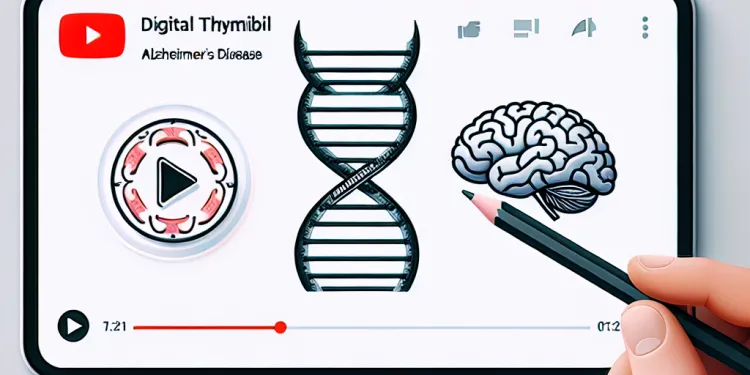
What role does genetics play in Alzheimer's disease?
Relevance: 49%
-

What role do genetics play in motor neurone disease?
Relevance: 48%
-

What support is available for families affected by Huntington's disease?
Relevance: 44%
-

What role does the HTT gene play in Huntington's disease?
Relevance: 43%
-

Is there a genetic predisposition to type 1 diabetes?
Relevance: 37%
-
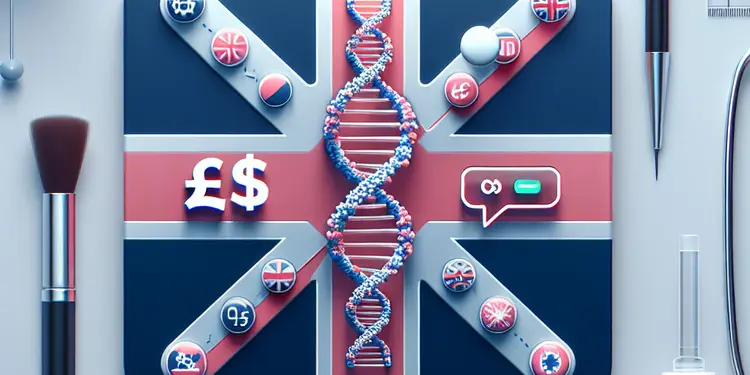
Is genetic screening available for cancer risk?
Relevance: 36%
-

What tests are available for diagnosing Lyme disease?
Relevance: 36%
-
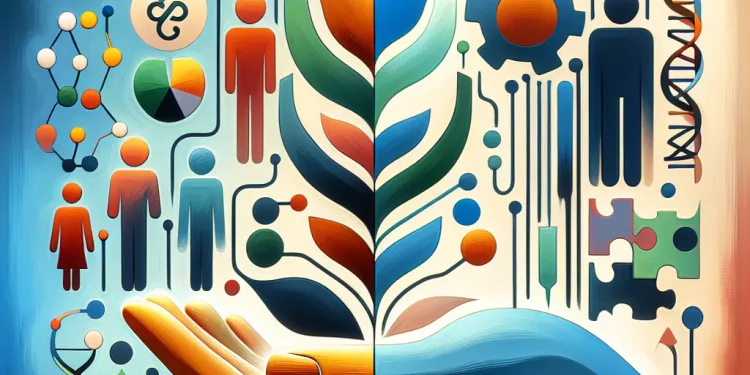
Is there a genetic component to autism?
Relevance: 35%
-

Is motor neurone disease hereditary?
Relevance: 34%
-
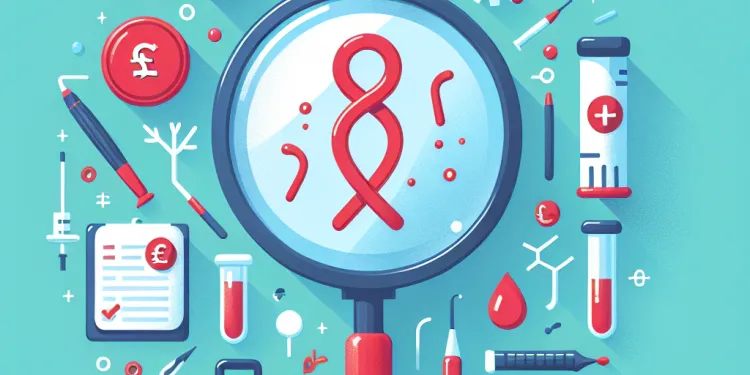
How is sickle cell disease diagnosed?
Relevance: 34%
-

How accurate are the tests for predicting type 1 diabetes?
Relevance: 33%
-

Taking a Genetic Family History - The Conversation (Bowel Cancer)
Relevance: 33%
-

Can genetics influence obesity?
Relevance: 33%
-

What is Mitochondrial disease?
Relevance: 33%
-

Do genetics play a role in dementia risk post-menopause?
Relevance: 31%
-
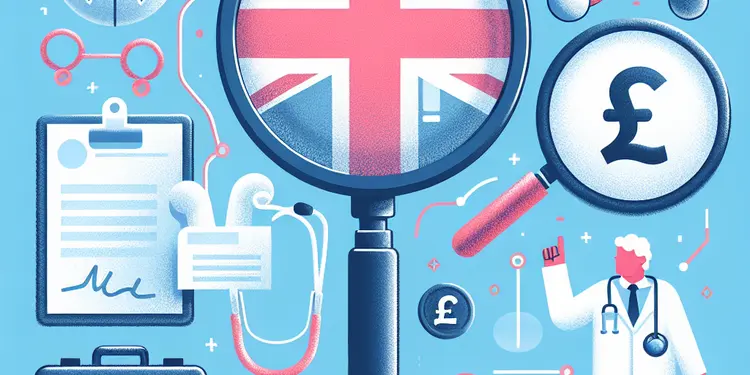
How is motor neurone disease diagnosed?
Relevance: 31%
-
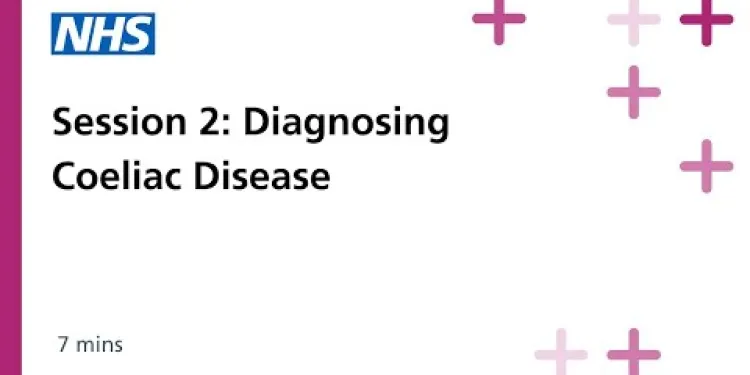
Diagnosing Coeliac Disease Updated 2021
Relevance: 30%
-

What is Alzheimer's disease?
Relevance: 29%
-

How often should cholesterol levels be tested when taking heart disease medication?
Relevance: 29%
-
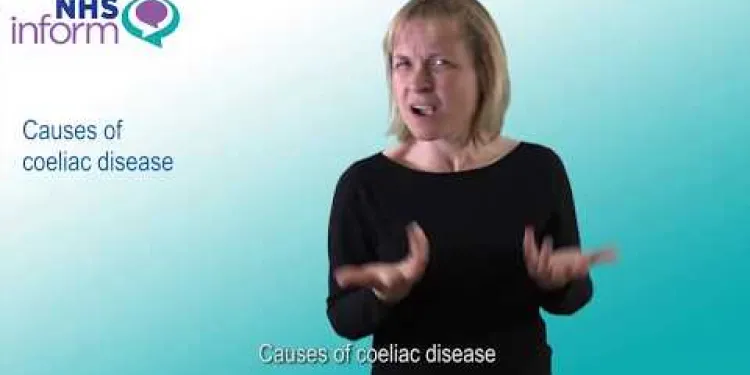
Causes of coeliac disease
Relevance: 29%
-

How is sickle cell disease inherited?
Relevance: 29%
Understanding Huntington's Disease
Huntington's disease is a progressive brain disorder caused by a defective gene. It affects movement, cognition, and emotions, leading to significant disability and eventually death. This inherited condition usually manifests in adulthood, often between the ages of 30 and 50, but there is a juvenile form that can appear in adolescence. The disease is caused by a mutation in the HTT gene, which is passed from parent to child in an autosomal dominant manner, meaning a child needs only one copy of the defective gene to develop the disorder.
The Role of Genetic Testing
Genetic testing plays a crucial role in the diagnosis, management, and understanding of Huntington's disease. It provides individuals who are at risk of inheriting the defective gene, as well as those who may already show symptoms, with critical information about their genetic status. In the UK, genetic testing for Huntington's disease can be performed in several contexts, including pre-symptomatic, confirmatory, and prenatal testing.
Pre-symptomatic Testing
Individuals with a family history of Huntington's may opt for pre-symptomatic testing to determine whether they carry the gene mutation, even if they show no symptoms. This type of testing is predictive and can greatly influence personal and family planning decisions. It is a deeply personal choice, often accompanied by genetic counselling to ensure individuals are fully informed of the implications, including psychological and social impacts.
Confirmatory Testing
Genetic testing is also used to confirm a diagnosis of Huntington's disease in symptomatic individuals. If a person exhibits signs suggestive of Huntington's, such as involuntary movements, cognitive changes, or psychiatric symptoms, a genetic test can confirm the presence of the HTT gene mutation. This confirmation allows for better management of the condition, including tailored treatment plans and the involvement of appropriate support services.
Prenatal Testing
For prospective parents with a risk of passing on Huntington's disease, prenatal testing options are available. Techniques such as chorionic villus sampling (CVS) or amniocentesis can be conducted to determine if the fetus carries the defective gene. Additionally, pre-implantation genetic diagnosis (PGD) during in vitro fertilization can help prevent the transmission of the disorder to the next generation, offering parents some control over the genetic outcome for their children.
Ethical Considerations and Support
While genetic testing offers valuable insights, it also poses ethical and emotional challenges. The certainty of a positive test result can lead to significant emotional distress, impact life choices, and affect insurability. In the UK, genetic counselling services are essential to support individuals through the testing process, helping them understand the ramifications of results and offering emotional and psychological support.
Understanding Huntington's Disease
Huntington's disease is a sickness that affects the brain. It happens because of a broken gene. This sickness changes the way a person moves, thinks, and feels. It can make a person very sick and can lead to death. Huntington's disease runs in families. Most people get it when they are adults, between 30 and 50 years old. But sometimes young people get it too. The disease happens because of a change in a gene called HTT. If a parent has the broken gene, their child can get the disease with just one copy of the broken gene.
The Role of Genetic Testing
Genetic testing helps find out if a person has the broken gene for Huntington's disease. This testing is important to know more about the disease and to help people who are at risk. In the UK, there are different kinds of tests for this disease. These include testing before showing symptoms, testing to confirm the disease, and testing before a baby is born.
Pre-symptomatic Testing
If someone in your family has Huntington's, you might decide to have a test to see if you have the gene. This is called pre-symptomatic testing. Even if you don’t feel sick, you can find out if you have the gene. This helps make life choices and family plans. It's a personal choice. Often, there is special help called genetic counseling. Experts talk with you about what the test means for your life and feelings.
Confirmatory Testing
If a person shows signs of Huntington's, like hard-to-control movements or changes in thinking and feeling, a genetic test can confirm the disease. This means the test can say for sure if a person has the broken gene. Knowing for sure helps doctors make better plans to take care of you, and you can get the right help and services.
Prenatal Testing
If parents worry about passing Huntington's to their baby, there are special tests when the baby is not yet born. Tests like chorionic villus sampling (CVS) or amniocentesis check if the baby has the broken gene. There is also a special test during in vitro fertilization (IVF) called pre-implantation genetic diagnosis (PGD). This helps parents stop the disease from passing to their children.
Ethical Considerations and Support
Genetic testing brings good information but also some hard choices and feelings. Getting a test that says you have the gene can be scary and can change how you make life decisions. It might also affect your insurance. In the UK, people can get help from genetic counseling services. These experts help people understand test results and give support for feelings and choices.
Frequently Asked Questions
What is genetic testing for Huntington's disease?
Genetic testing for Huntington's disease involves analyzing the DNA to detect the presence of the expanded CAG repeat in the HTT gene, which is responsible for the disease.
Who should consider genetic testing for Huntington's disease?
Individuals with a family history of Huntington's disease, especially those with a parent who has the condition, should consider genetic testing to determine their risk.
What does a positive genetic test for Huntington's disease indicate?
A positive test indicates that the individual has the expanded CAG repeat in the HTT gene and will eventually develop Huntington's disease if they live long enough.
Is genetic testing for Huntington's disease available for children?
Genetic testing for minors is generally not recommended unless there are symptoms, as the disease typically manifests in adulthood.
What are the benefits of genetic testing for Huntington's disease?
Genetic testing can provide clarity and help individuals make informed decisions about family planning and future care.
What are the risks of undergoing genetic testing for Huntington's disease?
Risks include psychological stress, potential discrimination, and impacts on family dynamics; counseling is recommended before testing.
How accurate is genetic testing for Huntington's disease?
Genetic testing for Huntington's disease is highly accurate in identifying the presence of the mutation in the HTT gene.
Can genetic testing predict when symptoms of Huntington's disease will appear?
No, while genetic testing can confirm the presence of the mutation, it cannot predict the onset age or severity of symptoms.
Is pre-symptomatic genetic testing for Huntington's disease a personal choice?
Yes, it's a deeply personal decision, and individuals should receive genetic counseling to understand the implications.
What support is available for those considering genetic testing for Huntington's disease?
Genetic counseling provides education, resources, and support to individuals and families considering testing.
Can genetic testing for Huntington's disease be part of prenatal testing?
Yes, prenatal testing is available, but it involves complex ethical considerations and requires careful counseling.
How is genetic testing for Huntington's disease performed?
The test typically involves a blood sample, which is then analyzed in a lab to detect the expanded CAG repeat in the HTT gene.
Can a negative genetic test rule out Huntington's disease completely?
If the test is negative and there's a family history, it usually means the individual does not have the gene mutation and won't develop the disease.
What is the role of genetic counseling in Huntington's disease testing?
Genetic counseling helps explain the testing process, results, and possible outcomes to individuals and families.
How do privacy concerns affect genetic testing for Huntington's disease?
Privacy concerns include potential discrimination in employment or insurance; GINA offers some protections in the U.S.
What is the Genetic Information Nondiscrimination Act (GINA)?
GINA is a U.S. law that prohibits genetic discrimination in health insurance and employment.
Can lifestyle changes impact the progression of Huntington's disease after a positive test?
Currently, lifestyle changes can't alter the disease's progression, though they may improve quality of life.
Is there a treatment for Huntington's disease once a positive genetic test is confirmed?
There is no cure, but treatments can manage symptoms and improve quality of life.
Are there alternatives to genetic testing for assessing Huntington's disease risk?
Family history assessments can indicate risk, but only genetic testing provides definitive answers about mutation presence.
What should individuals consider before proceeding with genetic testing for Huntington's disease?
Individuals should consider the emotional impact, confidentiality issues, and potential psychosocial implications, alongside consultation with genetic counselors.
What is genetic testing for Huntington's disease?
Genetic testing is a special test. It looks at your genes. Genes are part of your body that come from your parents. They help decide what you look like.
This test checks for a health problem called Huntington's disease. Huntington's is a disease that can make you sick. It can be passed down from parents to children.
If the test shows you have the gene for Huntington's, it means you might get the disease one day.
Tools that can help you understand more include:
- Ask a doctor to explain.
- Look at pictures or videos about genes and diseases.
- Use easy words or ask someone to read with you.
Genetic testing for Huntington's disease looks at your DNA. It checks for changes in a gene called HTT. These changes cause the disease.
Who should think about getting tested for Huntington's disease?
People who might want to get tested have a family member with Huntington's disease. This means if your mom, dad, or grandparents have it, you might want to know if you have it too.
Talking to a doctor can help you decide. They will explain what the test can tell you and what it cannot. They will also help you understand your feelings about the test.
It can help to speak with a counselor or join a support group. They can give you support and help you think about your choices.
If someone in your family has Huntington's disease, like a mom or dad, you might want to take a special test. This test can tell you if you might get the disease too.
What does a positive genetic test for Huntington's disease mean?
A positive test means a doctor found signs you might get Huntington's disease. This is a sickness that affects the brain.
If you get a positive test result, it does not mean you are sick now, but you may get sick later in life.
If you are worried or have questions, talk to a doctor or a counselor. They can help you understand and make a plan.
Using pictures or simple charts can also help you understand better.
A positive test means the person has a change in the HTT gene. This change will cause Huntington's disease if the person lives long enough.
Tools like audio books and text-to-speech apps can help with reading.
Can kids get tested for Huntington's disease?
Kids can find out if they have Huntington's disease with a test. This test checks their genes. You can talk to a doctor to help with this test. Some people also use special tools or ask for help if they find reading hard.
Doctors usually do not suggest genetic tests for children unless they show signs of a health problem. This is because most of the time, the illness appears when people are adults.
Why is genetic testing for Huntington's disease helpful?
Genetic testing can tell if you have a gene that may cause Huntington's disease. Here are some ways it can help:
- Plan for the future: Knowing about the gene can help you and your family make important plans.
- Medical care: Doctors can watch your health more closely and provide the right care.
- Support: You can find support groups to meet others who understand what you're going through.
If reading is hard, ask someone to read with you, or use audiobooks or read-aloud apps to help understand better.
Genetic testing can help people understand their health. It can help them make good choices about having children and taking care of themselves in the future.
What are the dangers of getting a test for Huntington's disease genes?
Here we explain what can happen if you decide to take a test to see if you have a gene for Huntington's. We use simple words to help you understand.
There might be some risks. You might feel worried or stressed. Some people might treat you unfairly. It could also change how your family gets along. It is a good idea to talk to a counselor before you take a test.
How correct is a test for Huntington's disease?
Genetic testing can check if someone has Huntington's disease. The test looks for a change, called a mutation, in a special part of the DNA called the HTT gene. This testing is very good at finding the mutation.
Can a genetic test tell us when Huntington's disease will start?
A genetic test can look at your genes to see if you have Huntington's disease. But it can't say exactly when the disease will start showing symptoms.
What you can do:
- Talk to a doctor who knows about Huntington's disease.
- Find support groups to help you and your family learn more.
- Use pictures and videos to understand better.
No, genetic tests can tell us if the change (mutation) is there. But they can't tell us when symptoms will start or how bad they will be.
Can you choose to have a test for Huntington's disease before you have symptoms?
Some people want to know if they might get Huntington's disease even before they feel sick. This is called a "pre-symptomatic genetic test." It is a personal decision. This means you can decide if you want to take the test or not.
If you are thinking about taking the test, here are some things that might help:
- Talk to a doctor who knows about this test.
- Speak with a counselor who can help you understand your feelings.
- Talk to family members about your choice.
- Read simple information about Huntington's disease.
Remember, it's your choice. You should do what feels right for you.
Yes, it's a very personal choice. People should talk to a special doctor, called a genetic counselor, to learn what it means for them.
What help can you get if you are thinking about a test for Huntington's disease?
If you want to know about getting tested for Huntington's disease, there is help for you:
- Talk to a genetic counselor: They explain the test and answer questions you have.
- Support groups: Join others who understand what you're going through.
- Ask your doctor: Your doctor can give advice and tell you where to get more help.
Using a computer or tablet to look up more information can also be helpful. Ask someone you trust to help you find what you need.
Genetic counseling helps people learn and get support when they are thinking about genetic testing. It offers important information and help to families and individuals.
Can doctors check for Huntington's disease in an unborn baby?
Doctors can do a special test to see if a baby will have Huntington's disease. This test is called "genetic testing." It checks the baby's genes before the baby is born.
If you want to know more, you can talk to a doctor or a nurse. They can help explain it. Using pictures or videos might also help you understand better.
Yes, there are tests for unborn babies, but these can be tricky. It's important to talk about them carefully and think about what's right and wrong.
How do doctors test for Huntington's disease?
Doctors use a genetic test to see if someone has Huntington's disease.
They take a small sample of your blood.
They send the blood to a lab, where it is checked for special signs of the disease.
If you have questions or feel worried, talk to a doctor or a health expert.
You can also ask a friend or family member for help.
The test usually needs a blood sample. This sample is checked in a lab. Scientists look for a special pattern in the HTT gene called "CAG repeat".
Does a negative test mean you don't have Huntington's disease at all?
If the test says "no" and other family members have had the illness before, it usually means the person does not have the bad gene and will not get the illness.
What does a genetic counselor do for Huntington's disease testing?
Genetic counselors help people understand how genes work in the body.
If someone thinks they might have Huntington's disease, a genetic counselor can:
- Talk about what the test is for.
- Help people decide if they want the test.
- Explain what the test results might mean.
- Offer support and answer questions.
Tools like pictures or storyboards can help explain things. Talking to a counselor can make things clearer and less worrying.
Genetic counseling helps people and families understand tests, results, and what might happen after.
How does worrying about privacy change genetic tests for Huntington's disease?
When people think about taking a genetic test, they might worry about privacy. Privacy means keeping your personal stuff secret. For Huntington's disease, this is important.
If people worry that their private information won't be safe, they might not want to take the test. This can be a problem because testing can help doctors give the right care.
Here are some tips to help:
- Ask the doctor to explain how they keep your information safe.
- Find out who can see your test results.
- Use simple words to talk about privacy with your family.
People have worries about privacy. They are afraid they might be treated unfairly at work or when getting insurance. In the U.S., there are rules called GINA that help protect people.
What is the Genetic Information Nondiscrimination Act (GINA)?
The Genetic Information Nondiscrimination Act, or GINA, is a law. It stops people from being treated unfairly because of their genes. Genes are like instructions in our body. They tell our body how to grow and work.
With GINA, no one can use your genes to treat you differently. This means you can't be treated unfairly at work or when getting health insurance because of your genes.
If reading is hard, ask someone to help you understand or use tools like reading software that reads aloud.
GINA is a U.S. law. It stops people from being treated unfairly because of their genes. This law helps with health insurance and jobs.
Can changing how you live help with Huntington's disease after you find out you have it?
Right now, changing how you live won't stop the disease from getting worse, but it can make you feel better.
Can you treat Huntington's disease after a positive test?
There is no cure, but doctors can help with the symptoms. This can make you feel better and enjoy life more.
Can we check for Huntington's disease without genetic testing?
Yes, there are other ways to check for signs of Huntington's disease. These are the things we can do:
- Talk to a doctor: They can look at signs and symptoms.
- Family history: Learn if other family members have the disease.
- Use brain scans: Doctors can see changes in the brain.
- Watch for movement changes: Look for changes in how a person moves or talks.
If reading is hard, ask someone to read with you or use an audiobook.
Looking at family health history can show if there might be a risk of a disease. But, only a special test called a genetic test can tell for sure if you have a change in your genes.
Things to Think About Before Getting Tested for Huntington's Disease
Before you decide to have a test for Huntington's disease, here are some things to think about:
- Talk to a doctor: A doctor can explain what the test is and why it is important.
- Family support: Talk with your family about the test. It's good to have their support.
- Feelings: Think about how you might feel if you get the test results.
- Help from a counselor: A counselor can help you understand your feelings and support you.
It's important to get help and ask questions if you need more information.
People should think about how it will make them feel, if it is secret, and how it might affect their life and relationships. It can help to talk to a special doctor called a genetic counselor.
Useful Links
This website offers general information and is not a substitute for professional advice.
Always seek guidance from qualified professionals.
If you have any medical concerns or need urgent help, contact a healthcare professional or emergency services immediately.
Some of this content was generated with AI assistance. We’ve done our best to keep it accurate, helpful, and human-friendly.
- Ergsy carfully checks the information in the videos we provide here.
- Videos shown by Youtube after a video has completed, have NOT been reviewed by ERGSY.
- To view, click the arrow in centre of video.
- Most of the videos you find here will have subtitles and/or closed captions available.
- You may need to turn these on, and choose your preferred language.
- Go to the video you'd like to watch.
- If closed captions (CC) are available, settings will be visible on the bottom right of the video player.
- To turn on Captions, click settings .
- To turn off Captions, click settings again.
More Items From Ergsy search
-

What is the role of genetic testing in Huntington's disease?
Relevance: 100%
-

How is Huntington's disease diagnosed?
Relevance: 78%
-

What is Huntington's disease?
Relevance: 77%
-

Can Huntington's disease be prevented?
Relevance: 76%
-

What causes Huntington's disease?
Relevance: 71%
-

At what age do symptoms of Huntington's disease typically appear?
Relevance: 70%
-

Is Huntington's disease fatal?
Relevance: 69%
-

What research is being done on Huntington's disease?
Relevance: 68%
-

Can Huntington's disease be cured?
Relevance: 67%
-

What are the symptoms of Huntington's disease?
Relevance: 65%
-

How does Huntington's disease affect cognition?
Relevance: 64%
-

What kinds of specialists are involved in treating Huntington's disease?
Relevance: 63%
-

How does Huntington's disease affect movement?
Relevance: 63%
-

How does Huntington's disease affect emotions?
Relevance: 60%
-

Can lifestyle changes help manage Huntington's disease?
Relevance: 56%
-

How is Huntington's disease inherited?
Relevance: 52%
-

What is Juvenile Huntington's disease?
Relevance: 51%
-

Is genetic testing available for colorectal cancer?
Relevance: 50%
-

Are there treatments available for Huntington's disease?
Relevance: 49%
-

What role does genetics play in Alzheimer's disease?
Relevance: 49%
-

What role do genetics play in motor neurone disease?
Relevance: 48%
-

What support is available for families affected by Huntington's disease?
Relevance: 44%
-

What role does the HTT gene play in Huntington's disease?
Relevance: 43%
-

Is there a genetic predisposition to type 1 diabetes?
Relevance: 37%
-

Is genetic screening available for cancer risk?
Relevance: 36%
-

What tests are available for diagnosing Lyme disease?
Relevance: 36%
-

Is there a genetic component to autism?
Relevance: 35%
-

Is motor neurone disease hereditary?
Relevance: 34%
-

How is sickle cell disease diagnosed?
Relevance: 34%
-

How accurate are the tests for predicting type 1 diabetes?
Relevance: 33%
-

Taking a Genetic Family History - The Conversation (Bowel Cancer)
Relevance: 33%
-

Can genetics influence obesity?
Relevance: 33%
-

What is Mitochondrial disease?
Relevance: 33%
-

Do genetics play a role in dementia risk post-menopause?
Relevance: 31%
-

How is motor neurone disease diagnosed?
Relevance: 31%
-

Diagnosing Coeliac Disease Updated 2021
Relevance: 30%
-

What is Alzheimer's disease?
Relevance: 29%
-

How often should cholesterol levels be tested when taking heart disease medication?
Relevance: 29%
-

Causes of coeliac disease
Relevance: 29%
-

How is sickle cell disease inherited?
Relevance: 29%


